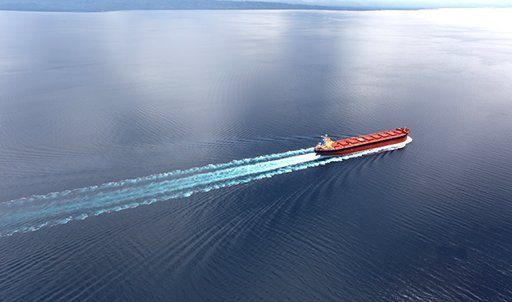110 shipowners send open letter to the IMO calling for speed limit regulation

France’s bid to introduce speed limits for ships as a quick way to cut industry emissions has been endorsed by 110 well-known shipowners in an open letter to the IMO. Signatories to the letter come from across the world including 2020 Bulkers, A M Nomikos, Almi Tankers, Awilco LNG, Borealis Maritime, Chartworld, Diana Shipping, Dynacom, Euronav, GoodBulk, Navios, Safe Bulkers, Star Bulk, StealthGas and Louis Dreyfus Armateurs, one of the most vocal backers of the idea for a number of years.
The group believe there is a “real-world effectiveness of a potential prescriptive speed measure in helping achieve reduction targets”, noting that recent studies suggest that ships are speeding up again as global demand recovers.
The group has called for maximum annual average speeds for container ships, and maximum absolute speeds for the remaining ship types, which take account of minimum speed requirements.
“Such a regulation should be implemented as soon as possible and the obligation for compliance should be placed both on shipowners and operators, including charterers,” the letter states.
Reducing speed for most ship sectors would work as an “excellent transitionary and early measure”, France stated in its submission to the IMO, reported by Splash earlier this month. France has not specified by how much ships should slow, seeking discussion with IMO member states on the matter.
The large number of German signatories to the open letter sent to the IMO today find themselves against their country’s official position on the matter ahead of key discussions at IMO next month.
Denmark, Germany and Spain have submitted a joint proposal ahead of next month’s Marine Environment Protection Committee (MEPC) session. The joint proposal, like France’s, seeks to bring in urgent short-term measures to speed up shipping’s decarbonisation drive before 2023 as required by IMO’s initial strategy on cutting greenhouse gas emissions. The 10-page document seen by Splash details a goal-based approach to cutting CO2 emissions and claims it can achieve at least a 40% reduction in carbon intensity by 2030.
Anne Steffensen, director general of Danish Shipping, Denmark’s shipowners’ association, dismissed the idea of a speed limit when contacted by Splash today. “A goal-based approach gives a level playing field and drives innovation towards new fuel types whereas speed limits will not solve the problem and risk being a sleeping pill,” Steffensen said.
